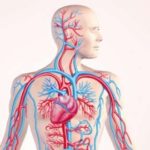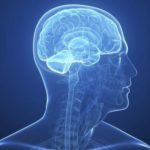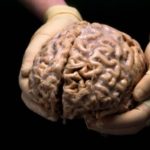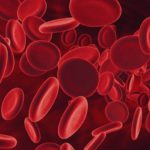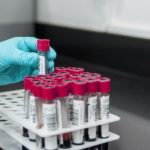What causes electrolyte imbalance?
Electrolytes are minerals present in blood and tissues. They form ions in solution and carry an electric charge. They have a capacity to conduct electricity as is seen in nerve transmission. Their movement controls the level of water inside and outside cells as well as in the cardiovascular system. They affect the acidity or pH of the blood and play an active role in nerve, muscle, gut, and renal functions. Their balance is essential for the normal functioning of almost all organ systems and electrolyte imbalance can be life-threatening.
Common electrolytes in our body and causes of their imbalance
Sodium
This is a major positively charged electrolyte present outside the cells. Sodium and chloride levels in the body are regulated by the kidneys and are influenced by the hormone aldosterone. The two most important functions of sodium are water balance and neuromuscular conduction of signal and muscle contraction. The chloride ion is an important factor in acid-base balance and the acidity of gastric juice. Chloride, like sodium, changes the serum osmolality. A decreased blood sodium level is known as hyponatremia and raised blood sodium level is known as hypernatremia.
Hypernatremia occurs because of:
- Increased sodium intake
- Decreased water intake
- Decreased urine output in renal disease
- Severe vomiting
- Diarrhea
- Sweating in hot and humid weather
- Heart failure
- An increased secretion of aldosterone or cortisol hormones, that causes reabsorption of sodium from urine in the kidneys
- Head injury
Hyponatremia is due to:
- Low sodium diet
- Excessive plain water intake
- Fasting
- Anorexia nervosa
- Vomiting and diarrhea
- Tap water enemas
- Bulimia
- Salt losing kidney disease
- Diuretics – drugs that increase urine output
- Cirrhosis of liver
- Heart failure
- Excessive sweating in hot weather
Potassium
Potassium is a positively charged ion, present mainly inside cells (97%). The remaining 2 to 3 % is found in blood and interstitial fluid. Potassium promotes the transmission and conduction of nerve impulses and the contraction of muscles including the heart and intestine. It promotes enzyme action for cell metabolism and takes part in maintaining pH of blood. A potassium deficit is associated with alkalosis and a potassium excess is related to acidosis.
Potassium loss leading to hypokalemia occurs in the following conditions:
- Trauma: major surgery, burns
- Malnutrition, starvation, alcoholism, anorexia nervosa, crash diets
- Continuous or strenuous exercise
- Vomiting, bulimia
- Diarrhea, laxative abuse, enemas
- Hormonal influence: stress, steroids
- Aldosterone causes potassium excretion
- Insulin promotes the uptake of potassium by cells and may result in hypokalemia
- Renal Potassium Loss in acute kidney failure
- Drug-induced: bronchodilators, decongestants
Potassium excess or hyperkalemia is seen in:
- Excessive intake of oral potassium supplements or IV infusions
- Acute or chronic kidney failure
- Metabolic acidosis
- Transfusion of old blood
- Haemolysis and transfusion of old blood
- Drugs: potassium-sparing diuretics like aldosterone, beta-blockers and ACE inhibitors
Magnesium
Magnesium is the second important intracellular electrolyte after potassium. Its functions, causes of imbalances, and clinical manifestations are the same as those of potassium.
Calcium
It is found in both extracellular and intracellular fluids. It remains with phosphorus and 99% is found in bones and teeth. The remaining 1% exists in the blood, tissue fluids, and cells. Its main role in the body includes the transmission of nerve impulses, blood clotting, contraction of skeletal muscles and contraction of the heart, and formation of teeth and bone.
Calcium loss causes hypocalcemia and occurs due to:
- Lack of calcium and vitamin D intake
- Chronic diarrhea
- Hypoalbuminemia (low albumin level in blood)
- Kidney failure
- Decreased parathyroid hormone secretion
- Alkalosis
- Transfusion of citrated blood
Hypercalcemia or increased calcium in the blood occurs due to
- Excessive use of calcium supplements
- Immobility
- Malignancies
- Steroid therapy
- Thiazide diuretics
An adequate intake of all the above electrolytes is essential for normal body functions. Whenever their balance in the body is altered due to the above-mentioned causes, the concerned functions deteriorate and may become life-threatening. Prompt diagnosis and restoration to normal levels is required to reduce complications and mortality.




